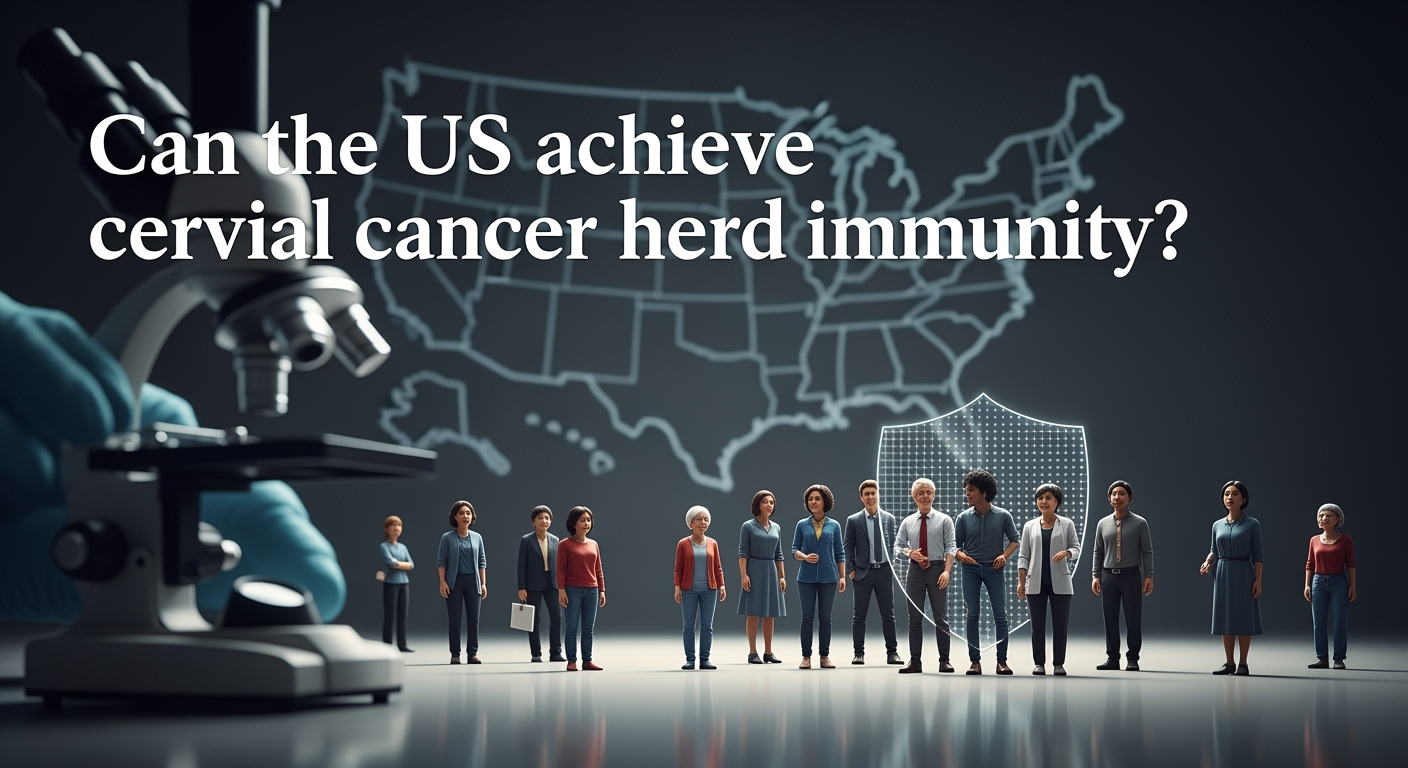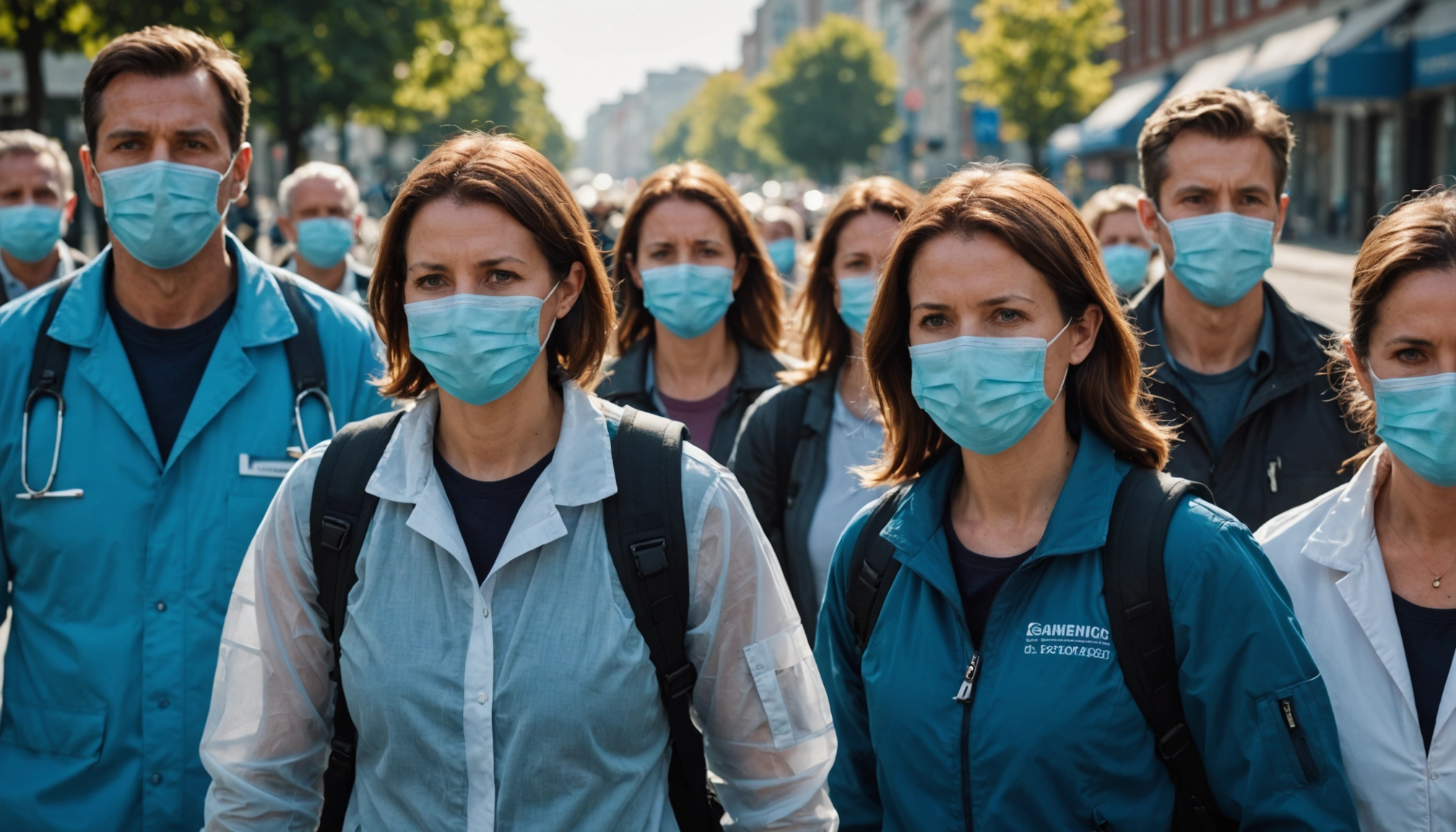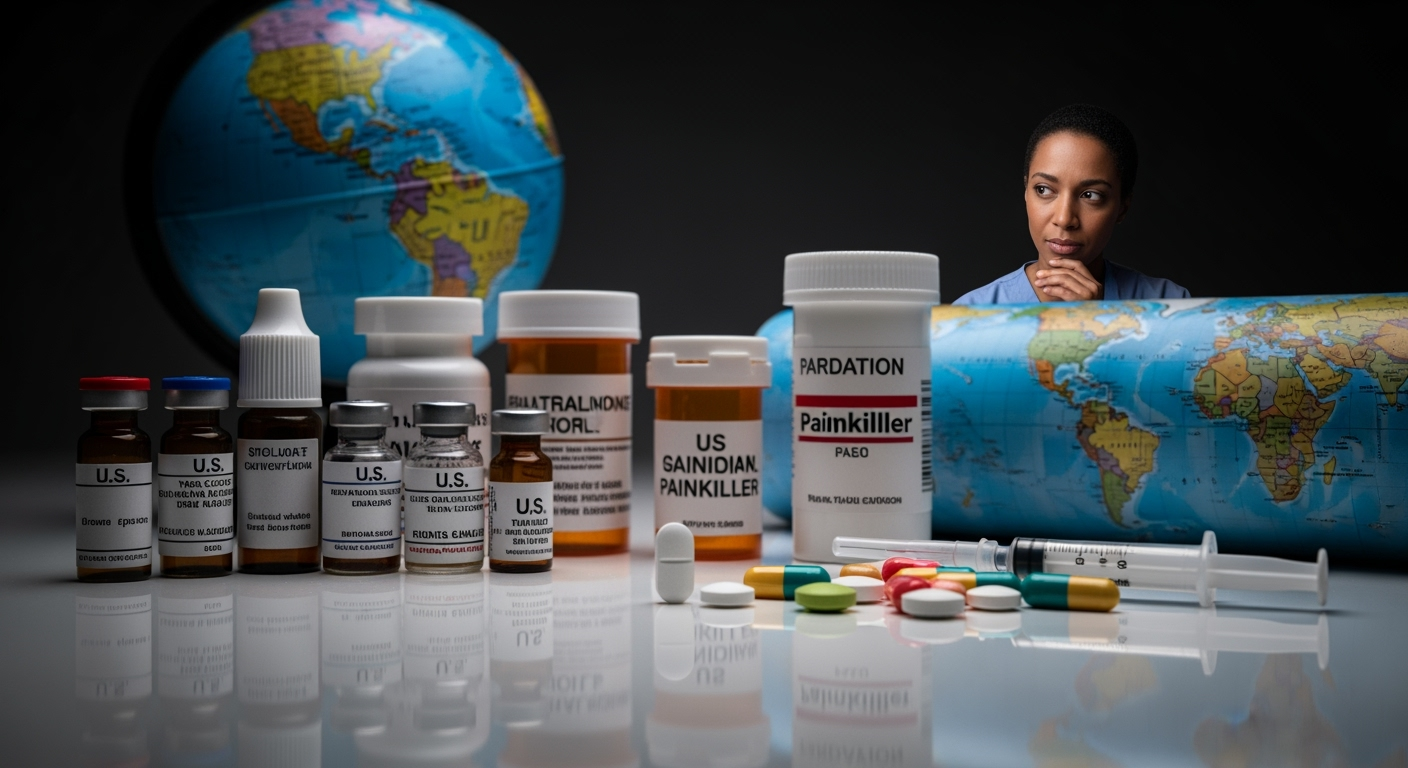Related Articles

The Path to a Cervical Cancer-Free Future: Can the U.S. Achieve Herd Immunity?




The United States, long considered a vanguard in global health, finds its recent stances on vaccine policy and the ongoing opioid crisis increasingly raising alarm among international health experts. A confluence of rising vaccine hesitancy, significant shifts in public health leadership, and the persistent, far-reaching impact of the opioid epidemic is prompting global health organizations and professionals to voice profound concerns over the integrity of evidence-based policy and the potential for worldwide repercussions. The issues, rooted in domestic policy choices and societal trends, are casting a long shadow over America's role in safeguarding planetary health.
The decline in vaccination rates and the resurgence of preventable diseases within the U.S. have emerged as a primary concern for the global health community. Vaccine hesitancy, recognized by the World Health Organization (WHO) as one of the top ten global health threats since 2019, is significantly contributing to these challenges. Research from Florida Atlantic University highlights that decreasing vaccination rates in the U.S. are undermining the substantial health benefits achieved by immunizations both domestically and internationally. Indeed, recent outbreaks of diseases such as measles and whooping cough in nearly 35 U.S. states underscore the tangible consequences of this trend. The Council on Foreign Relations notes that misinformation originating in the United States has led to significant drops in vaccine uptake in various international settings, further compounding the problem.
Adding to these worries are recent upheavals within the U.S. public health infrastructure. The leadership of Health and Human Services (HHS) Secretary Robert F. Kennedy Jr. has triggered widespread concern, particularly his actions regarding the Centers for Disease Control and Prevention's (CDC) Advisory Committee on Immunization Practices (ACIP). Kennedy's decision to replace all existing members of ACIP and the subsequent reversal of prior recommendations for universal COVID-19 vaccination, opting instead for "shared clinical decision-making," have been met with strong criticism. Critics argue that these actions politicize public health and erode trust in scientific consensus, threatening the CDC's long-standing global reputation as a beacon of public health excellence. The WHO Director-General, Tedros Adhanom Ghebreysus, has explicitly called for efforts to protect public health excellence at the CDC, an institution many countries have emulated. Furthermore, the cancellation of significant funding for mRNA vaccine research, with potential implications for cancer, diabetes, and other conditions, signals a concerning shift in scientific priorities. These domestic policy changes, experts warn, do not remain confined to American borders but embolden anti-science movements and undermine global health preparedness.
Concurrently, the U.S. opioid crisis continues to be a profound public health disaster with international ramifications, highlighting a stark global imbalance in pain management. Since 1999, more than 645,000 people in the United States have died from opioid overdoses, with the annual death toll remaining more than six times higher than it was at the turn of the millennium. The crisis, exacerbated by the proliferation of illicit synthetic opioids like fentanyl, often trafficked from overseas, saw over 70,000 fatal overdoses in 2017 alone, with nearly 70% involving such synthetics. The potency of fentanyl, estimated to be 10 to 50 times stronger than morphine, contributes significantly to this toll.
A critical factor identified by experts is the prescribing practices within the U.S., which have historically involved more frequent prescriptions, higher doses, and earlier use of opioids, even as a first-line treatment, compared to international counterparts. This contrasts sharply with the global reality where an estimated 3.6 billion people in the poorest countries receive less than 1% of the distributed opioid analgesics, contributing to a "global pain relief access abyss". While the U.S. grapples with oversupply and addiction, millions worldwide suffer from untreated pain due to lack of access to essential medicines. Global health institutions advocate for a "balanced approach" to pain management that expands access to necessary pain relief medications without inadvertently fueling an opioid crisis, using the U.S. experience as a cautionary tale. International efforts have been made to address the illicit supply, with the U.S. securing unanimous UN votes to control substances like carfentanil and rallying countries to combat the global drug problem. However, the domestic challenges within the U.S. continue to underscore the complex interplay between medical practice, public health, and illicit drug markets.
The interconnectedness of global health means that U.S. domestic policy shifts inevitably ripple across the world, prompting explicit warnings from international bodies and health leaders. The WHO's call to protect the CDC's integrity stems from its critical role as a global model for public health institutions. Many countries have established their own health agencies based on the CDC's framework, and any perceived weakening or politicization of the U.S. institution threatens this international standard. When the U.S. shifts its health policy direction, particularly concerning vaccines, it creates "aftershocks" globally, as noted by the British Medical Association. The concern is that undermining scientific consensus in a leading nation like the U.S. provides ammunition for anti-science movements and misinformation campaigns worldwide, impacting vaccine confidence and uptake far beyond its borders.
Furthermore, the U.S. approach to painkiller regulation stands in stark contrast to the urgent global need for access to pain relief. While developed nations like the U.S., Canada, and Australia grapple with opioid crises fueled by over-prescription, vast populations in low- and middle-income countries lack even basic access to these essential medicines. Global health experts emphasize that the U.S. experience should not deter other nations from establishing balanced policies to provide pain relief, highlighting the need for careful regulation rather than outright restriction where pain management is desperately needed. The global community looks to the U.S. not just for scientific innovation but also for responsible policy-making that considers its worldwide implications.
At the heart of these concerns lies the pervasive issue of politicization and the erosion of public trust in scientific institutions. The vaccine debate, heavily influenced by political agendas and fueled by misinformation, has become a battleground, rather than a platform for collaborative solutions. Statements from high-profile figures, such as former President Trump linking the common painkiller Tylenol to autism, exemplify the spread of unsubstantiated claims that can undermine public health guidance. This politicization directly contributes to vaccine skepticism and the declining confidence in established medical advice, a phenomenon amplified by social media's role in disseminating disinformation.
Rebuilding trust demands more than just reinforcing pro-vaccine messages; it requires addressing deeper societal fractures, historical injustices, and community alienation from the scientific process. The actions of the HHS leadership, including the "gutting" of scientific advisory committees and the cancellation of vital research, are viewed by some as direct attacks on the integrity of public health guidance. These developments not only impede America's ability to tackle its own health challenges but also severely diminish its capacity to lead and collaborate effectively on the global health stage. A renewed commitment to scientific integrity, transparency, and inclusive policy-making is essential to restore confidence and ensure that health decisions are driven by evidence, not ideology.
In conclusion, the United States' current trajectory regarding vaccine policy and its ongoing struggle with the opioid crisis are not merely domestic issues but critical global health concerns. International experts are increasingly vocal about the potential for U.S. policy shifts to destabilize global health efforts, undermine scientific consensus, and exacerbate existing health disparities. A world confronting persistent infectious disease threats and a pervasive lack of access to essential medicines cannot afford a retreat from evidence-based public health leadership from one of its most influential nations. Reaffirming its commitment to scientific integrity, fostering public trust, and engaging in robust international cooperation will be paramount for the U.S. to regain its standing and effectively contribute to a healthier global future.